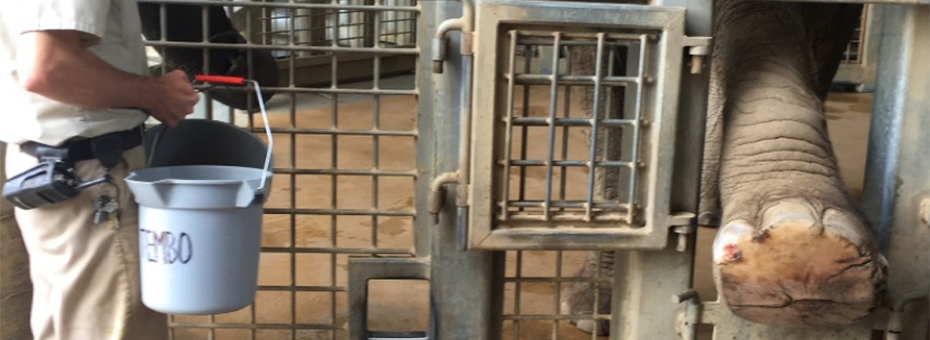For continuous improvement professionals everywhere, a key principle is to support people closest to the actual work and that includes zoo keepers ministering to an elephant.
“We have an elephant that has foot sores,” explained Jeff Foster, director of performance improvement at the San Diego Zoo Global. “Those sores require a daily washing.”
During a Lean Talks presentation, Foster, the zoo’s chief continuous improvement guy, noted that although work for most people will not involve improving how pachyderm pods are swabbed, the same improvement principles apply such as supporting “process owners,” the people closest to the work.
So when veterinarians had difficulty reaching through the elephant enclosure’s heavy metal fencing with water and soap, elephant keepers, the enclosure’s “process owners,” suggested an improvement that the vets rejected. But Foster gave the go-ahead to the proposal, which involved altering the fence slightly and teaching the afflicted elephant a new trick.
“We cut a hole in the fence, the elephant sticks his foot through, and we were able to clean it with absolutely no problem,” Foster said. The lesson: no matter the work, “The process owner knows the process better than anybody else – always.”
Watch the Lean Talks video now to see a picture of the improved washing process and hear Jeff’s tips on how he leads and influences people, including:
- The four leadership attributes that he stresses and the one he considers most important
- How to influence people so they become problem solvers
- The three levels of change people go through and why recognizing each one helps you lead
- How to build momentum for a continuous improvement effort
Keep Learning
Register today for the 2019 Lean Summit, March 27-28, in Houston to get practical, actionable tips from Lean Talks, workshops, plenary presentations, learning sessions, and networking with lean practitioners working on the same problems you are. Go to https://www.lean.org/summit2019 now.



